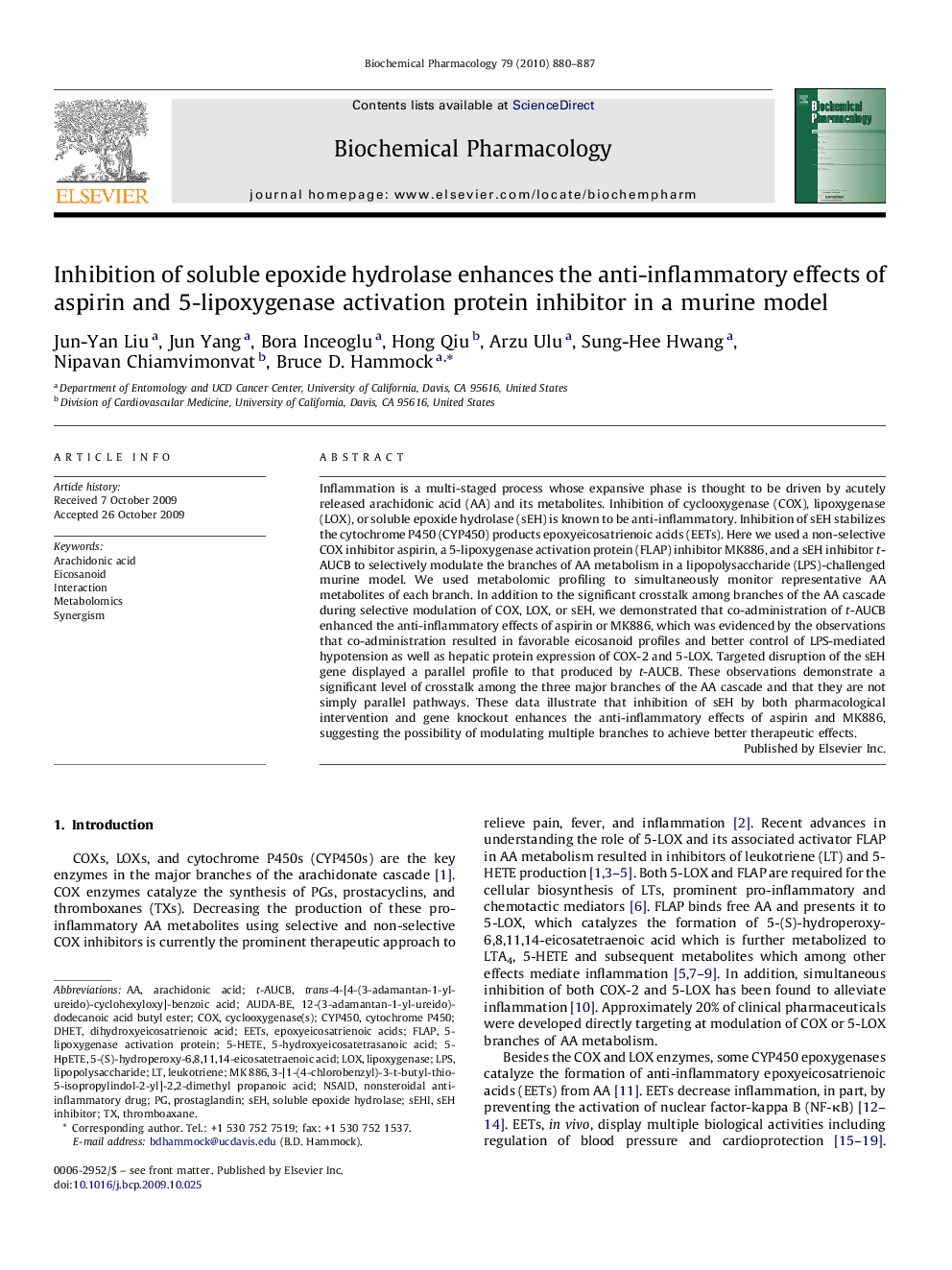| Article ID | Journal | Published Year | Pages | File Type |
|---|---|---|---|---|
| 2513769 | Biochemical Pharmacology | 2010 | 8 Pages |
Inflammation is a multi-staged process whose expansive phase is thought to be driven by acutely released arachidonic acid (AA) and its metabolites. Inhibition of cyclooxygenase (COX), lipoxygenase (LOX), or soluble epoxide hydrolase (sEH) is known to be anti-inflammatory. Inhibition of sEH stabilizes the cytochrome P450 (CYP450) products epoxyeicosatrienoic acids (EETs). Here we used a non-selective COX inhibitor aspirin, a 5-lipoxygenase activation protein (FLAP) inhibitor MK886, and a sEH inhibitor t-AUCB to selectively modulate the branches of AA metabolism in a lipopolysaccharide (LPS)-challenged murine model. We used metabolomic profiling to simultaneously monitor representative AA metabolites of each branch. In addition to the significant crosstalk among branches of the AA cascade during selective modulation of COX, LOX, or sEH, we demonstrated that co-administration of t-AUCB enhanced the anti-inflammatory effects of aspirin or MK886, which was evidenced by the observations that co-administration resulted in favorable eicosanoid profiles and better control of LPS-mediated hypotension as well as hepatic protein expression of COX-2 and 5-LOX. Targeted disruption of the sEH gene displayed a parallel profile to that produced by t-AUCB. These observations demonstrate a significant level of crosstalk among the three major branches of the AA cascade and that they are not simply parallel pathways. These data illustrate that inhibition of sEH by both pharmacological intervention and gene knockout enhances the anti-inflammatory effects of aspirin and MK886, suggesting the possibility of modulating multiple branches to achieve better therapeutic effects.
Graphical abstractDual inhibition of two branches of the AA acid cascade synergistically decreases inflammatory mediators.Figure optionsDownload full-size imageDownload as PowerPoint slide
